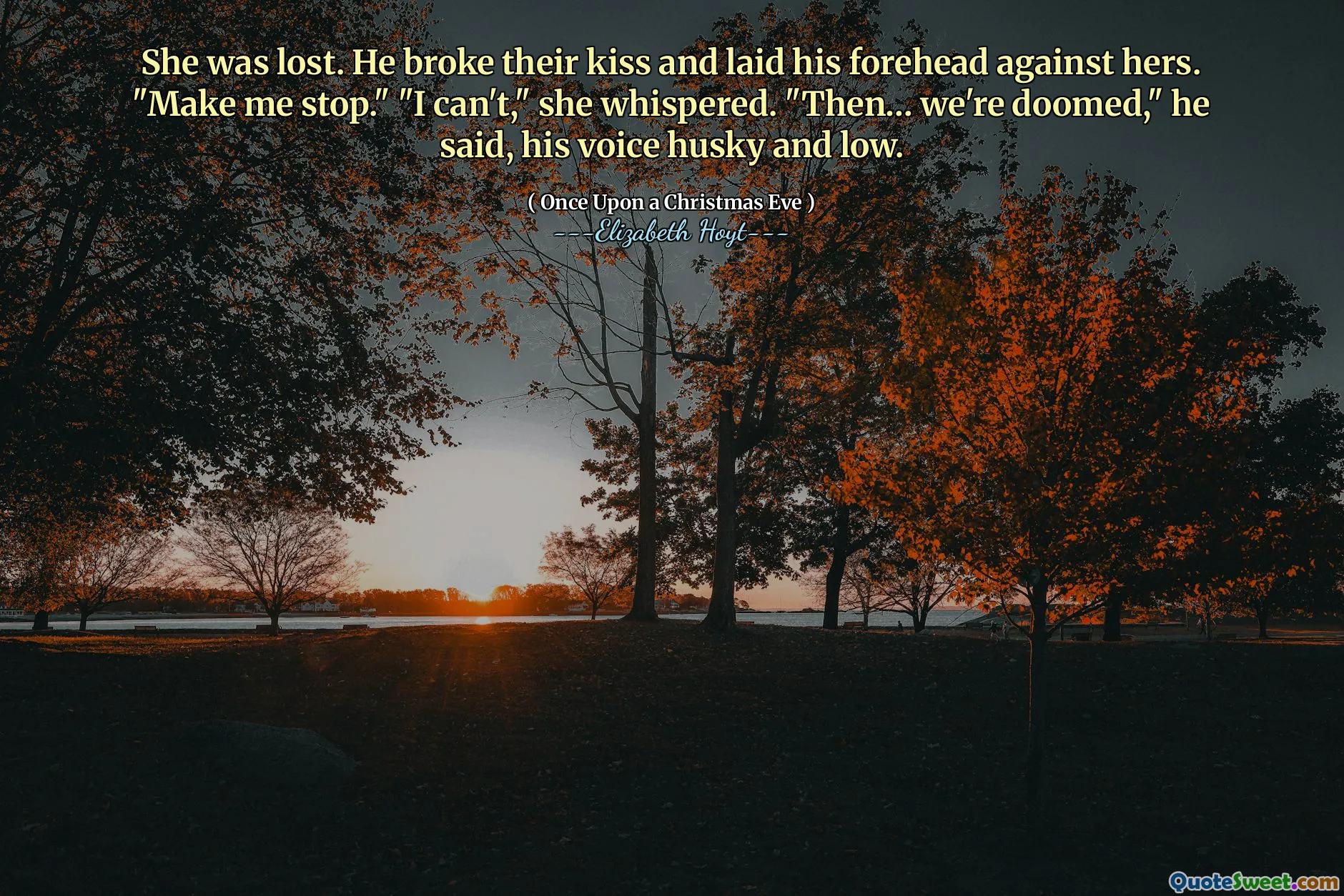
She was lost. He broke their kiss and laid his forehead against hers. "Make me stop." "I can't," she whispered. "Then… we're doomed," he said, his voice husky and low.
This excerpt from Elizabeth Hoyt's '(Once Upon a Christmas Eve)' captures a moment fraught with emotional tension and vulnerability. The imagery of physical contact—especially the act of breaking a kiss—symbolizes a confrontation with insurmountable feelings and internal conflicts. The girl feels lost, suggesting a sense of confusion or overwhelming emotion, while the man's action of resting his forehead against hers signifies a desire for closeness and understanding. Her plea, "Make me stop," reveals a struggle with her own feelings or perhaps external circumstances preventing expression or action. His response, "I can't," coupled with his husky low voice, suggests helplessness and deep emotional attachment, acknowledging that their connection is inevitable yet fraught with danger. The phrase "then... we're doomed" encapsulates a sense of tragic inevitability—perhaps the recognition that their relationship is doomed from the start, or that their emotions are too powerful to contain. This moment underscores themes of love, loss, and the inescapable nature of attraction. It invites the reader to contemplate the depth of human intimacy and the heartbreak that often accompanies profound connections. Hoyt's portrayal of this charged scene encapsulates battles within oneself—between desire and reason—and the perilous beauty of unpredictable love that can be both a salvation and a source of suffering.






